Daley Downing's Blog, page 22
October 25, 2018
It’s Time For A Rant About Christian Dance
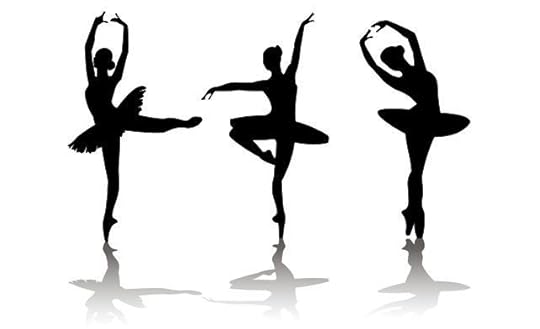
For those of you who don’t know, I was a dancer before I was a writer. Well, really, they both were of pretty much equal importance in terms of passion in my youth; but I was well-trained in classical dance before I even contemplated self-publishing. Along with teaching small children to zip zippers and wash their hands, I’ve taught elementary pupils their first plies and tendus, and guided tweens into finding their own style and refining the basics of technique. After Muffin was born, I had to take a break from leading classes, but my heart has always had one foot still in the studio.
A couple of years ago, I first heard of something called “Christian dance.” I was simultaneously curious and confused, because I really couldn’t see how the usual guidelines for other types of religious art — like paintings, literature, and music — would apply to dance. The more I investigated and read and asked around, the more flummoxed I grew. Some denominations are absolutely against any type of dance occurring on church premises (they won’t even allow ballroom waltzes at wedding receptions); others enthusiastically encourage congregations to dance during worship services if they feel so moved.
Then there’s what seems to be the trend among devout Christian communities in recent years — a churchgoer or ministry leader who was also trained in an “acceptable” form of dance uses a church-owned space to run classes in movements that “glorify the Lord.” Regardless of whether the space used has a floor that won’t provoke injuries if the students land a jump or turn wrong. Or if they’re dressed to allow proper freedom of movement and acquiring of technique — just so long as they’re pretty much covered neck to ankles in Amish-style pajamas. And as long as they think there isn’t a single kind of music in the world other than worship music. And spend part of each class sitting around in a Sunday school lesson.
Now, here’s why I — as a Christian and as a dancer — have major problems with this approach:
While dance is an art highly open to interpretation (hence why there are so many styles of it), it is also an athletic activity, and guidelines exist to help prevent injuries to dancers, and these guidelines should be followed no matter what style you’re learning. When students are more likely to pull a muscle or twist tendons because they’re wearing clothing that restricts what’s supposed to be freeflowing movement, this is dangerous and should not be an advised practice. The same goes for students not being properly warmed up in the interest of avoiding “suggestible” sorts of stretches. This is “modesty policing” in the extreme, and it seriously bothers me, since it seems to be considered more important than students’ safety.
There is absolutely nothing wrong with using non-Christian lyrical songs, as long as the lyrics don’t include questionable language or content. While I don’t feel there’s anything wrong with using obviously Christian music, either, it’s my firm opinion that boxing yourself in to only classical pieces or clearly religious compositions limits creativity too much.
Dance is dance; Bible study is Bible study. Mixing the two seems not quite workable. Or practical. Or even…why? If you’re a dancer with religious or spiritual beliefs and morals, this would guide your conscience when it comes to making choices about music, costumes, and how you relate to your students in some ways. For example, I once asked to pray for a pupil who was having back surgery; this was in a secular studio, but the pupil was fine with it, and no one complained. But we don’t have to slap a “Christian” label on everything we do to make it worthy in God’s eyes.

Now, does the scenario above describe every single Christian dance studio or company in the country? No, it doesn’t. But unfortunately, it does seem to cover a number of them. (And I’ve been doing my research; this comment isn’t a shot in the dark.) Why can’t we provide solid technical instruction and strong morals to dance pupils? Why do we have to sacrifice one for the sake of the other?
There’s also something to be said for the “preaching to the choir” syndrome that happens a lot with Christian art — people who are already churchgoers who attend a “Christian” dance production will merely see confirmation of their own beliefs and expectations. Not that this is bad; however, it means a message that may need to reach people who never set foot in religious services won’t. What’s so wrong with advertising a faith-based performance to the entire world?
Different denominations have always had different views on what’s okay and what’s not when it comes to the arts. But dance in particular has gotten a bad rap, and the notion of watering down this beautiful art that I so love, in order to make it more palatable to an overzealous few, does not sit well with me.
For years, I’ve wanted to open my own studio. For years, the money or the time or both wasn’t there. But in this current climate of dance becoming increasingly geared towards competition (something else I strongly disapprove of), and facing an alternative within my own community that I also don’t consider a solution, I will make the time and get the money to establish my place in this world.
I love dance, have always loved it, and am a better person for it. I can wear a leotard and tights and still be a modest, Christ-loving woman. I can choreograph sequences to Irish music or Lindsey Sterling or Disney soundtracks and still pray for my students. I can arrange a recital that portrays a message of eternal salvation and invite the general public.
I’m not going down on this front without a fight. It’s time to have the fight on the right front.
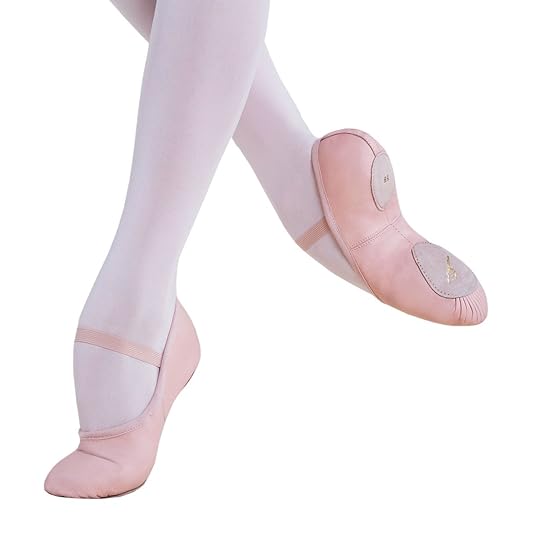
October 20, 2018
To NaNo or Not to NaNo? That is the Question…

At least it’s the question on the mind of all writers who regularly torture themselves…er, participate in NaNoWriMo. The short answer for me, is: No.
No, no, no, no, and — no. Here’s the detailed reason why:
Last year I about died when I was nearly 30k words into my project…and then woke up one morning somewhere around November 20th — and realized I absolutely hated the direction it was going. I liked the characters, and the tone, but too much of the plot as it had developed made me melt into a puddle of oozing bleck that was ruining the carpet.
Plus, I was finishing the final edits for Rulers and Mages at the same time. Yes, yes, I actually was doing that to myself.
Anyway, I was pretty close to finishing NaNo, in a non-traditional (“rebel”) way, so I decided to add to my monthly word count the approximately 10k new words that had come out of Volume 2’s final edits, and about 12k of an untitled/ungenred experimental piece/possible novella I attempted exploring a different take on my imploding project. (I did make it to 50k by November 29th, but I ultimately scrapped the different take, and put the original project on the shelf indefinitely.)
Also, last year I realized that “winners” have to pay for their prizes — which is just so not okay after we’ve literally toiled for hours and hours and made our families afraid of us and sacrificed our chances for relaxing over an entire month.
It really turned me off the whole idea.

So, as far as I am concerned: NaNo, away with thee!
Here’s what NaNo is good for: You quickly develop a lot of self-discipline when it comes to your writing. You learn how to stick to a project and make serious headway on it in a short amount of time.
The first year I undertook this challenge, that was exactly my goal. I’d been struggling for literal ages with a novel that I’d written when White Fang was still in elementary school, and I’d always thought about trying to do more with it, but never did. A reason to put it off always came up.There was always a reason to put it off.
So, in 2016, the goal became to finish the novel, entirely, and find out how to self-publish. I’d queried several times before without much luck. And I was tired of feeling like I’d never get anywhere. So I took the leap. (What came out of NaNo 2016 was Masters and Beginners. It did pay off.)
However, since then, the one problem I have not had is finishing a WIP. After not writing very much for a long time, it’s like that part of my brain can’t be shut off. In a year and a half, I’ve published a total of 4 books, and my plans for 2019 include at least 4 more.
But I have also learned that I have limits, and sticking to them is highly advised.

For example, trying to write 90% of a novel within 30 days is not a good idea. Setting myself a realistic deadline of having a draft done within about 6 weeks, and then making sure the rewrites and edits don’t take more than another 6 weeks, is a worthy aspiration.
The other good teaching tool of having a strict time limit is refusing to let your inner editor go crazy. Some of us continually battle the critic that arises while we’re writing, the voice that always triple-guesses our choice of wording, character names, how much description we put in that paragraph… And that needs to stop.
Yes, editing is necessary, and everybody’s first draft is going to be a bit of a mess. And that’s totally fine. But we also deserve to like our own work — we certainly pour enough blood, sweat and tears into it.
Overcoming the urge to edit every single chapter I complete, as I go, is not a NaNo-friendly strategy. In the interest of time, you really can’t. Though if there’s a certain phrase or adjective that just isn’t clicking for me, I simply don’t feel comfortable going on until it isn’t bugging me anymore. This is just how I roll.
And how I roll and NaNo…well…that may not line up.

Anyway, while I am officially not participating in NaNo, here’s what I will be doing in November:
I’m spending October getting as far as I can on the Order of the Twelve Tribes prequel. When November 1st comes, if I feel like there’s still more to tackle on that, I will do so. But if, by November 5th, the inspiration’s no longer kicking, then I will devote a chunk of time (till about Thanksgiving) to the Super Secret Project. (Both of these WIPs I really want to finish drafts of before Christmas.)
Spreading myself too thin is an experience I should only be describing in the past tense. And avoiding writer’s block is a priority. So, if my mind goes blank on the Super Secret Project (since I don’t have all the twists worked out for that yet), there is always Volume 4 to get back to.
Since I prefer to write my first drafts by hand, keeping up with word count can be kind of tough. Measuring my daily progress by number of pages — and not fretting if I fall short — is my ambition instead.
To those of you heading into traditional NaNo, may the odds be ever in your favor. To those of you opting out, I hear you. And to those of you who are just plain writing — rock on.
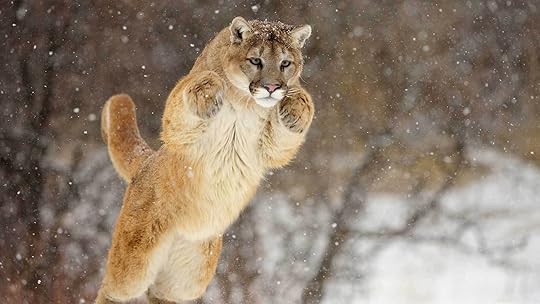
October 17, 2018
The Relaunch of the Afterverse!
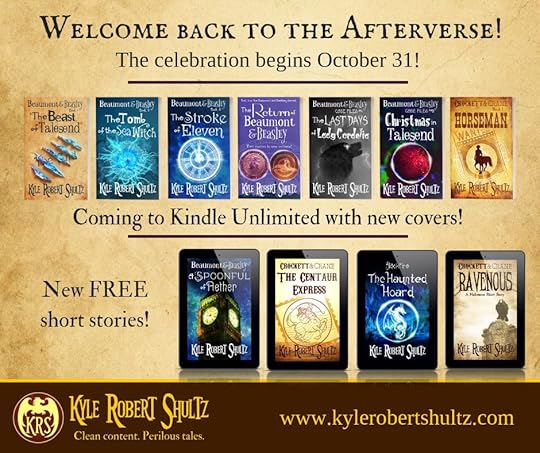
Good morning! So, today, a bit of a departure from my usual discussions or rants or flailing. Though there will be some flailing, as I am participating in the big, awaited announcement from fellow indie author Kyle Robert Shultz — the official relaunch of his Beaumont and Beasley and Crockett and Crane series will soon be underway!
The big news (via the author):
All his books will be available on Kindle Unlimited
There shall be 3 new (free!) stories for his email subscribers: A Spoonful of Aether (Beaumont and Beasley), The Centaur Express (Crockett and Crane), and The Haunted Hoard (Blackfire). (I will personally cut down said hoard myself to get to this dragon. For those of you who don’t know, I am utterly in love with Malcolm Blackfire, and he is my future spouse — no arguing.)
Kyle is also providing a free Halloween story (Ravenous, part of the Crockett and Crane series) on his Patreon page
If you wish to support Kyle via Patreon, you can do so for as low as $1 a month, and he’ll make sure you get monthly short stories
For those of us who have been following the releases of the Beaumont and Beasley novellas, some repackaging is going on with those. (Basically, he’s combining two novellas in one book, for a total of 3 editions of 2 stories in 1 installment. Due to technical difficulties, I am unable to bring you the links that explain this better. If you have questions, though, Kyle is open to being stalked — ahem, I mean, contacted on social media.)
The official relaunch date is October 31st.
On that day and thereafter, all the currently-available-to-read-and-purchase books shall be found on Kindle Unlimited, with updated covers, and a fresh round of professional edits — and new stuff to enjoy as well. Such as the free short stories for those of us who subscribe to Kyle’s email list. (Visit his website: https://kylerobertshultz.com/ for more information on how to do such things.)
Whether you’re a new fan to this wonderful world called the Afterverse, or you’ve been along for the ride for a while, this is a great opportunity to delve more into these great tales, and share your obsession with friends.
Titles in the Afterverse:
Beaumont and Beasley
The Beast of Talesend (1)
See how it all began, how Nick and Crispin met Cordelia, and how the Beasley brothers discovered fairytales are more than just bedtime stories. The reader soon finds out that there’s much more to the old tale of “Beauty and the Beast” than they ever thought, either.
The Tomb of the Sea Witch (2)
Nick, Cordelia, and Crispin travel to Warrengate Academy of Advanced Magic, and here enters my beloved and betrothed, Malcolm Blackfire, as well as a number of terrific secondary characters that we all now need in our daily lives. Together they’ll take on a version of the evil sea witch from “The Little Mermaid.”
The Stroke of Eleven (3)
This installment involves wibbly, wobbly, timey-wimey stuff, and the stakes are raised higher than ever for our heroes. There are some stunning character arcs, and this third in the B&B series will leave you on the edge of your seat, and demanding more tissues. There are references here to “Cinderella,” but in honored Shultz tradition, the happily-ever-after you think you know you just do not.
The Return of Beaumont and Beasley (4)
Featuring The Janus Elixir and The Hound of Duville
The Janus Elixir
This story is about Malcolm, so if you guessed that I was absolutely enthralled with every single word written from Mr. Blackfire’s perspective, then you’d be a million-dollars-right. It’s actually set a hundred years before The Beast of Talesend, but trust me, it all works. And if you’re a fan of the classic “Dr Jekyll and Mr Hyde,” buckle up!
The Hound of Duville
Back in present day Talesend with Nick, Crispin, and Cordelia, some months after the events of The Stroke of Eleven. Somebody’s transforming men into dogs. It’s hilarious and beautiful. (And Malcolm has a heartstring-tugging appearance — oh, my handsome dragon love!)
The Strange Cases of Beaumont and Beasley (5) (to be released)
Featuring The Geppetto Codex and The Hare and the Hatter
The Geppetto Codex
Remember Gareth the faun and Sylvia the dryad from Tomb of the Sea Witch? Well, this is about their chance to solve a mystery! And Shultz’s take on “Pinocchio.” (I will admit, this is the only title that has me shaking in my shoes a little. Puppets give me the creeps. But I shall brave through for the sake of more time with Gareth and Sylvia.)
The Hare and the Hatter
This centers more on Crispin, and his part in the events in Stroke of Eleven — and he seeks help from the best, most qualified dragon in the world, so cue my happy dance. And, yes, folks, those are “Alice in Wonderland” references in the title.
The Fall of Beaumont and Beasley (6) (to be released)
Featuring The Unsinkable Molly Beaumont and Schism
The Unsinkable Molly Beaumont
Warning: This may be hard to read for fans of Molly, Crispin’s mermaid girlfriend and Cordelia’s distant cousin. (I have no idea why, but the author is already warning people, and the official blurb suggests the need for — dun, dun, dun! But be honest, you’re already dying to get your hands on it.)
Schism
This promises magic, danger, mayhem, and humor. Cordelia and Malcolm need to work together — a tall order — to fight the nefarious Jekyll and Hyde. DUN, DUN, DUN! I’m ready for the heartbreak. Bring it on.
The Last Days of Lady Cordelia (Beaumont and Beasley Case Files, #1)
Told from Cordelia’s point of view, this is also slightly timey-wimey, but also presents an interesting suggestion — what if Nick had never met Cordelia?
Christmas in Talesend (Beaumont and Beasley Case Files, #2)
Includes 4 holiday-themed stories, The Red Muffler, Dash Away, The War on Christmas, and Saint Nick.
The Red Muffler
Walking home with his arms full of Christmas parcels, Gareth the faun stumbles on a lost little girl standing by a lamp-post. Naturally, he invites her in from the cold…but is she really what she appears to be?
Dash Away
Alan the centaur isn’t a licensed veterinarian, but he does have plenty of experience with tending for sick animals – both natural and unnatural. However, he may be in over his head when he’s kidnapped to assist in a very unusual birth.
The War on Christmas
Crispin Beasley has had a strange, complicated year. He’s hoping that Christmas will afford him a break…but a case of mistaken identity on the rooftops of Talesend adds yet another bizarre twist to his unusual life.
Saint Nick
Nick, Cordelia, and Malcolm take a brief detour on their way to a Christmas party. At least, it’s supposed to be brief. An accidental tumble down a chimney changes that. What is the secret of the mysterious being known as Krampus? And who, exactly, is the Christmas Dragon?
Crockett and Crane
Horseman (1)
Set in the Afterverse 1891, in Shultz’s version of the Wild West, pulling in centaurs, “The Legend of Sleepy Hollow,” and some very familiar mentions (no spoilers, I swear), this is a departure from Beaumont and Beasley in terms of plot and characters, but not at all in the author’s trademark style and humor. Definitely check out Crockett and Crane if you haven’t already.
Deadwood (2) (to be released)
The sequel to Horseman, Shultz picks up with the adventures of Todd and Amy. There’s more alternative-history-Wild-West magic and peril awaiting readers old and new.
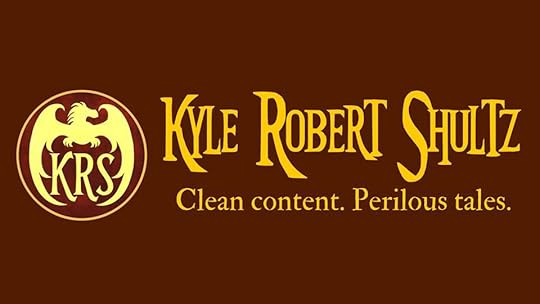
Kyle Robert Shultz developed the power of creating zany, fantastical worlds in his early teens, when he was bitten by a radioactive book. He is the author of multiple series set in the Afterverse, a parallel universe where myths, fairy tales, and classic stories are real events and part of history. He lives in self-imposed exile in the southern Idaho desert, far enough away from humanity to protect innocent lives should he lose control of his awesome fictional powers and rip a hole in the space-time continuum or something.
Kyle is a Christian who believes in writing high-quality stories free from agendas, politics, and objectionable content. His stories are clean, but not remotely safe. In reading them, you assume all risks—Kyle cannot be held responsible for any damage wrought upon your emotional well-being or cardiovascular health by unforeseen plot twists. When he’s not dreaming up new ways to torture his characters and readers, Kyle enjoys singing, hiking, horseback riding, and caring for a motley collection of animals.
October 7, 2018
My House Has Become Jurassic World

There’s something about dinosaurs. We can’t deny it. They are magnificent, terrifying, fascinating creatures, that we’re drawn to again and again, despite the fact they’ve been gone from our world for literal ages. It’s why we keep making and watching movies about them eating people who should’ve known better than to go back to the island, buying the unrealistically plush toys of what were giant reptiles, reading picture books featuring caricatures of the incredible beasts doing silly things to our children.
White Fang was really into dinosaurs for a few years; now it’s Muffin’s turn. For the last few months, we’ve had to endure his wanting to watch videos about dinosaurs (finding non-bloody footage can be a challenge, unfortunately), to browse the toys at stores, to read primarily books about — you guessed it — dinosaurs.
Yesterday, I allowed him a bit of a splurge. And I made him narrow it down, so that caused some friction, since he, of course, wanted them alllllll. Anyway, in the end, we survived, and left the store with 3 new Jurassic World toys (age appropriate, naturally).
And so began the transition my household is making — into becoming Jurassic Park.
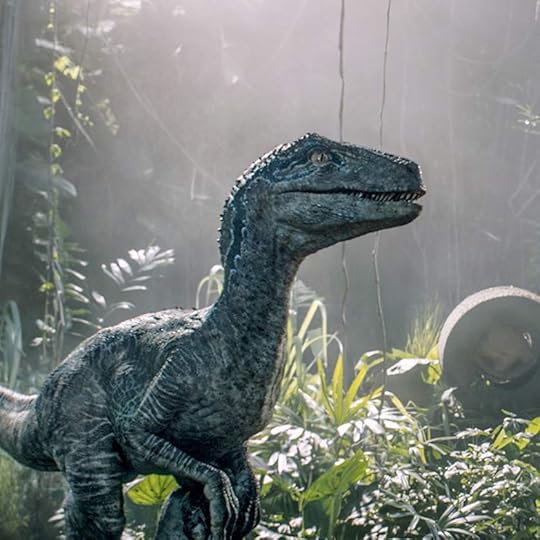
On the drive home, occasionally the T-Rex (batteries included) would roar at us from her packaging in the back seat. A snide comment on my driving? “Shut up,” I told her.
Toby was not pleased to meet the intimidating IndoRaptor — although she merely used her hooked claws to pet him.
As I tried to complete an online search for freelance work, roars and pounding feet from T-Rex dominated the other side of the table.
After Muffin went to bed, I found T-Rex behind the hearth gate — apparently that’s Paddock 9, in my living room.
This morning, somewhere around 6:30, I was woken by the growls and hisses of IndoRaptor.
Welcome to the park, everybody. Please keep your arms and legs inside the ride at all times.
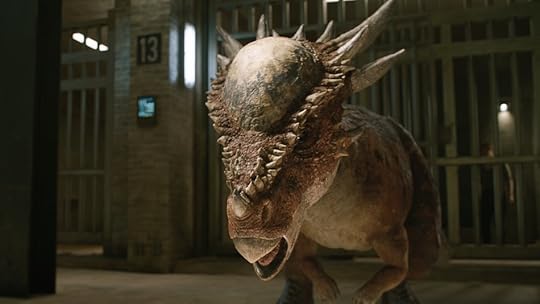
As of last night, White Fang and I have seen all of the Jurassic Park/Jurassic World movies. While we’re very aware of the more serious consequences of, for example, cloning an ancient top predator and inadverently releasing it into the world, we also agree that the idea of a dinosaur theme park is pretty freaking cool.
Riding in the gyroscope to view herds of triceratops and brontosaurs in their habitat would be awe-inspiring. Buying the plush stegasaurus in a gift shop a mere half mile from where you could see the real thing seems just brilliant.
White Fang and I agreed: It’s really simple — only breed herbivores. Because if you also breed man-eating carnivores, then you are asking for trouble. It’s pretty obvious by now (more than 20 years and 5 films into the canon).
And yet…we keep seeing it happen.
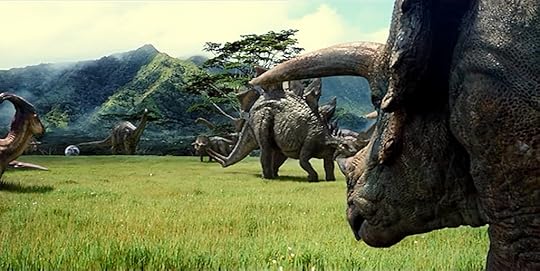
Small children have their plastic raptors and T-Rexs go head to head on playgrounds and in classrooms across the country. There’s all the sense of adventure and excitement, without any of the serious bloodshed and demise.
Is that why screenwriters and movie directors keep coming up with new hybrids to, er, hy-breed? Because of that fascination with the possibilities? In humans, does it overcome even the urge for self-preservation?
I won’t even touch on the ethics of all this. That is a discussion for another time, other circumstances.
For the moment, my house is about to be overrun with dinosaurs.
And I don’t really mind.

October 1, 2018
Thicker Than Water
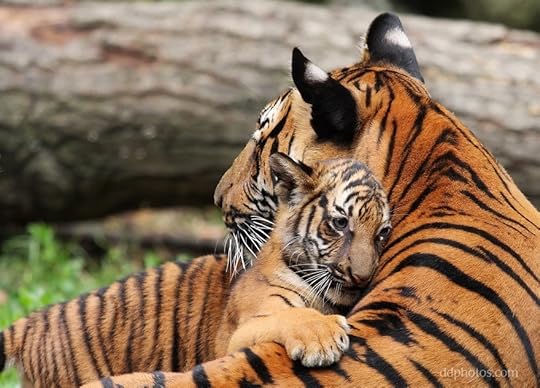
Late this summer, we had relatives come to visit, people that have known me my entire life, who have always been an unwavering source of support and encouragement. Watching them be the exact same people to my own kids is an experience that never fails to fill me with awe.
To many, family is family, and of course you’re there to lean on each other and build one another up. To others, family is who you choose to keep close and know you can rely on.
In a world where sharing genes doesn’t automatically mean you’re kin, I am incredibly thankful for having biological connections to some of the most compassionate and accepting people I’ve ever met.
And I am just as grateful to be able to count as family people an ocean away who owe me no obligation, genetic or otherwise.

In my life, the fact of being consistently acquainted with someone for 40 years is a real unicorn — rare, precious, and to be savored.
Blessings that I sometimes feel I don’t deserve have been showered upon me and my children. It is something I try hard not to question too much, and to forever hold dear.
“Family don’t end with blood.” – Bobby Singer, Supernatural

September 29, 2018
Multimedia Thoughts: How We Watch What We Watch

This may seem like a very 21st century, first-world-problem type of thing. While it’s true that television and film are considered a luxury, something we can live without, the fact is that most of us don’t. Radio changed the civilized world by spreading news and culture to all areas of the globe; next, television pushed the boundaries even farther. Now we’re into an era of the internet playing a major role in transmitting TV shows.
I have to admit something: While I regularly use the internet for a lot of things — obviously, since you’re reading this blog via email or a search engine — I am not sold on the idea of trying to watch TV through a laptop or cell phone. My tepid feelings towards the matter arise from a combination of factors. Partly, it’s because I don’t have enough devices to just dedicate one to Hulu or Netflix — I have to be able to use the computers for a variety of tasks, at any given time. Also, there are wifi “cold spots” in our house — rooms where the wifi just refuses to work — so that complicates things as well.
And there’s the old quandary of what one person likes to watch, another can’t stand. It’s why a second television set became so popular in many American households. Stuff that’s now common in our world, that was supposed to make our lives easier.
Does it really, though?

When you go to the cinema, it’s so straightforward: You buy a ticket, walk into the building, sit down in the theater, the lights go down, and you employ good manners for the benefit of the rest of the audience, and just watch the film as it appears on the screen. Someone else is taking care of the technology applied to making this event happen. You willingly paid to enjoy it. It’s a win-win.
With cable or even just basic TV, you simply press a few buttons, and, boom, you know who’s about to lose the playoffs or what’s on Nature that night. Since networks tend to keep to a schedule, I can force my family into permitting me a chance to veg by reminding them that Jeopardy! is only on at 7:30 Monday through Friday.
If you find yourself saying, “But there’s nothing on” (trust me, that’s me as well), streaming can seem very appealing. Sign on to your device, click open your account, scroll down for a show you know you like and haven’t been able to view lately. Your internet bill paid up? Then just sit down and catch up. Or, if your device is portable, you can be finishing the laundry or starting dinner while you discover if those characters finally got together or broke up.
Of course, with cable often comes the option of recording a broadcast to your box, or calling up previously aired shows On Demand. I LOVE the On Demand feature. It means fewer commercials, and the same exact episode I missed the night, the week, the month before. With streaming services, time limits for viewing might be more strict. All this summer, I watched reruns of The X-Files from every single season ever made at the touch of a button, no additional fees. It was a beautiful thing.

And tons of TV shows (new and old) are on DVD now, and usually can easily be ordered through the public library system, either for free or a small rental price. And if you’re squeamish about cinema ticket costs, Redbox is awesome. It’s similar to the old Blockbuster stores, but cheaper, and you don’t even have to have internet. You just go to the literal box near the supermarket checkout, use cash or a credit card, get a physical DVD, and then bring that home to your player or computer. No worrying about if the streaming konks out during viewing.
We order DVDs from Netflix for this specific reason; streaming can be unreliable, and more expensive. Netflix’s monthly charges break down to pennies a day, for the privilege of no due dates, short waiting lists for new releases, and the ability to lie on the floor in your pajamas while being entertained. And if a disc is damaged, you get a replacement for free. I’ve heard horror stories about people being out of pocket and out of luck for Amazon Prime screwups.
[image error]
So, while I may be considered “old-fashioned” when it comes to how I watch what I watch, I’m not sure I care. Yes, cable packages have become expensive…but so has the other way. I simply don’t have the money to purchase cell phones and tablets — and pay a monthly data plan bill –for every person in my household. It doesn’t feel convenient; it doesn’t feel “easier.”
It is just plain a good thing for my children to learn to wait patiently for the TV to be open. For them to skip the cinema and anticipate the cheaper DVD release. For them not to have a laptop or cell phone or tablet until they’re in high school. And for them to be aware they will not shrivel up and die without immediate access to all of the trending things every waking moment.
Yes, advancements in machinery and electronics have definitely made our lives better in a lot of ways. But let’s not forget that people are ultimately running the machines. And that connecting with each other is still important.
We still need to take the whole family to the store, have everyone pick out their snacks, and stand in front of a selection of DVDs, debating which one to choose. Then arrange enough room on the couch and recliner and beanbags for everybody, and make sure the dog isn’t blocking the TV screen. Then put the disc in the DVD player, turn the lights off, and the sound up, and tell the kids to stop poking one another. And let the old-fashioned magic wash over us as the previews begin.

September 22, 2018
Whatever Happened to Feng Shui?

Do you ever wonder what happened to certain things that were popular years ago, but you suddenly realize, “Hey, we never hear about ______ anymore?”
The other day, for some reason, I thought this about Feng Shui. For those of you who aren’t familiar, it’s an Asian architectural and inner decor method that became popular elsewhere in the late 20th century. Basically, the idea is to arrange your house in the optimal way for garnering good luck and blessings from the universe. The concept hit it big here, probably due to the idea of coercing cosmic good fortune to rain down upon individuals. People started businesses where official Feng Shui consultants would come to your house or company and tell you what to rearrange and how (and most likely charge you a great deal of money for this information).
True Feng Shui is far more complex than I ever felt confident of tackling. (Plus, I’m not sure that having my bathroom perfectly aligned with my chakras will actually ensure getting the job of my dreams). I read a few books on the subject, and the major thing I got out of it was that: A) this is too heavy, dude, and B) materialism isn’t necessarily good for us.
Now I’m not a minimalist; there are certain things I like having plenty of. (Books, for example.) Though I can definitely agree that being focused on acquiring objects is a predominantly Western fixation that may not bring us health and prosperity.

Part of me really likes the notion of creating your immediate environment to be ultimately soothing and beneficial, not simply functional. This really appeals to my autistic nature, which craves stability, routine, being able to find things quickly, and know what’s going to come at you. And I won’t deny that I love to be organized.
Even if my organization system doesn’t make sense to anybody else. For example, I don’t have a physical to-do list, scribbled on a scrap piece of paper; I have a stack of letters or forms to be filled out, on the top is the one that I need to do first based on its date, and then everything underneath it is also arranged by this same order of importance.
My bookshelves may look like they aren’t arranged in any particular way; but I know that they are, and where to find a title or author. And since they’re my books, and no one besides me will ever need to find something, does it really matter if I can’t explain my reasoning more tangibly than that?
What would Feng Shui have to say about my cavalier attitude towards the placement of objects?

Maybe in some ways I’m just too practical to really delve into Feng Shui and give it a wholehearted chance. There are many aspects of my life that would make this endeavor an extremely difficult one. My guess is these practices from ancient China weren’t really designed with modern American cul-de-sac residences in mind. Nor is it necessarily possible for me to make sure of things like the “fire” and “water” parts of my house not being too close together; I can’t change where the gas lines and pipes run to.
However, I can absolutely agree that consumerism can get out of control, and that keeping possessions well organized is paramount to maintaining a healthy environment.
This can be a hard practice to keep up in our society.
You tell your kids to get rid of the toys they’re done playing with (and you know they’re done because they haven’t touched said items in over a calendar year). But, but, but, they’ll insist, those objects have such sentimental value, and don’t we always encourage them to form meaningful memories? So you relent…and then wish you hadn’t when Christmas shopping season comes around again — because you’ll realize there are all these new things the kids want…and that will need somewhere to be stored when they tire of them.

There are always charities and secondhand shops that will happily take these items when you’re finished with them. The system of passing on stuff that no longer works for your family but will for someone else is an excellent one. And we live in the land of garage sales and flea markets, carrying the unofficial motto, “One man’s trash is another man’s treasure.”
If…if you can ever get your family to part with said “trash.”
So, does Feng Shui actually serve a purpose in our culture? Can it be adapted to make our homes and businesses channel more effective and positive energy throughout our lives? Should we even be worrying about it?
And I have to wonder — for a society that was so enamored with this concept just a couple of decades ago, and now it doesn’t really seem to be “a thing”… Does this mean that following trends are more important to us than holding on to something innovate and establishing long-lasting change?

September 16, 2018
The Generation Gap
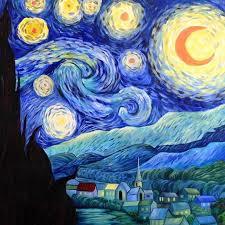
I’ve started thinking about this a lot. Maybe it’s part of getting older myself, and realizing that so much of the stuff I grew up with simply won’t exist, or will be quite different, for my own children, and wondering where the time has gone (and denying that I’m now “a grown-up”). Maybe it’s an unavoidable fact, since the culture that had been constant for several decades by the time I came of age is now in continual flux, as aspects that had stopped working years back are now in the process of reform; and that so many new things have become an integral part of everyday life in such a short span of time.
Is this is a new phenomenon? The generation gap. Or has it always been this way? In ancient civilizations, when people decided it was necessary to do away with the style of clothing/social manners/cooking/trade/education that their grandparents had supposedly thrived on, did the elders shake their heads and say, “Kids today”?
Whether we’ll ever know that or not, it is a fact in 2018 that the world has changed monumentally in the past decade and a half. When White Fang was a baby, a lot of people didn’t have wi-fi, Smartphones, Kindles, or Netflix in their homes, none of these words had become their own nouns and verbs, and kids were still expected to do the majority of their schoolwork with pencil and paper.

And one of the most interesting things about all this change is that it isn’t only being embraced by the younger generation. Everybody uses it. Millenials, teenagers, elementary students, 30-somethings, middle-aged; even retirees have blogs and Snapchat and YouTube accounts.
But there is still, most definitely, a generational gap of knowledge and familiarity on certain topics. Have you ever tried explaining to a senior citizen what a meme is? (That’s an experience that’ll make you want to run away to Albania and herd goats, let me tell you.) Or when you think you know all the emojis, but then a brand new set is released by some company you’ve never heard of, and a 6th-grader learns them all in the time it took you to put the wet laundry in the dryer. A couple weeks ago, White Fang and I watched a movie with Arnold Schwartzeneger’s son in the male lead role — and I was suddenly, acutely aware of just how long it’s been since the Terminator first announced, “I’ll be back.”
For the first time in my life, slang that I can’t easily figure out is tossed around in my presence. There are websites people use all the time that I’ve never visited. I have actually caught myself starting sentences with, “When I was your age…”
And I wouldn’t call myself technophobic by any means. Or “out of touch,” or “an old foagie” — especially considering that I’m aware most kids these days don’t even use phrases like that anymore to describe stodgy, stuck-in-their-ways adults. And yet (due to financial constraints in the last several years), the secondhand vehicle my family recently acquired is the first one I’ve ever driven with keyless entry, power windows and locks, a digital clock and thermometer on the dashboard.

On the other side of the coin, though, my mind can’t help but be boggled at the intensely sluggish pace it’s taking some parts of society to progress. For example: Why the hell isn’t bullying officially listed as a hate crime already? Why have I been needing to explain autism to people for the past 10 years straight? Why did it take until this fall for our school district to get laptops for all the students? How are there still people in the world who haven’t read Harry Potter? Why are people who take an interest in science fiction, graphic novels, comics, and “alt” rock still referred to as “geeks” and “nerds” and sneered at?
Why can’t we get there quicker than the next model of Apple anything?
While I may not be “up” on the all the “new” things (I’m sure some 10-year-old will happily tell me that’s not what people say anymore), I’m open to a lot. And I won’t automatically dismiss something “traditional” or “customary” as “offensive” or “ineffectual.” Too many of the pop culture moments happening right now won’t even be remembered by anybody in another 10 years. Just because something’s “old” doesn’t concretely mean it’s “bad” or “needs to go.”
But, I will still be quite happy when I don’t have to explain what memes, emojis, or apps are.
Or, for that matter, defend autism, Harry Potter, or wanting to own a TARDIS.

September 11, 2018
Turning Over A New Leaf

See what I did there? Yes, it was intentional. (Sorry.)
Every once in a while, you find yourself at a crossroads that you know just can’t be avoided or detoured away from. It might be a change you actually hoped for, or something you knew was coming, so you’ve prepared yourself. But when it’s something that you really could’ve done without, or weren’t expecting, then it can put a lot of things into a different perspective.
Recently, I was very upset when I didn’t receive a job offer I was certain I would. In my head, I’d made plans for the changes to my schedule this position would require, and got excited about the prospects of going back to a field I love. When it didn’t happen, I was pretty devastated.
Then after a few days, I dusted myself off, and vowed to begin again. I refocused my energy on getting the boys ready for school; then I went back to the drawing board, checking local job listings, and learning more about opportunities for regional artists.
And I refused to be too hard on myself. No, I don’t have a contract with a literary agency, nor a confirmed salary, or a bibliography that more than a few hundred people have heard of. It doesn’t matter. No, it really doesn’t. Because I am on Goodreads, on Barnes & Noble, my books are being read and enjoyed by people, and 2 years ago, none of this was happening. So, I have plenty to be proud of.
Am I continuing to rethink some aspects of my life as it presently is, though? Oh, yes.
For one thing, I’m staying firm in my resolve not to participate in NaNo this year. The extra pressure isn’t what I really need right now. Plus, considering that you don’t actually get anything for free, except bragging rights, if you win, does not make me (who is on the strictest of budgets) want to set aside the time and brainpower. It doesn’t feel worth it.
For another, I’ve decided not to set any concrete release dates for 2019. There are several projects I hope to publish next year, but I cannot at this moment make any promises — so I’m not going to. When I have a better idea on when specific things are about to occur, I’ll let everyone know. In the meantime, everybody’ll have to be patient.

I’m also not going to worry about how much I read, or what I read. The other day, I was going over my Goodreads account, and realizing that there are a lot of low ratings on my reviews, and it made me sad. So I tried to determine why — and I found that probably 80% of the books I’ve read in the last 2 years have been because of hype, and for no other reason. And this is generally why a lot of them fell below my standards. I’m a pretty picky reader, and I admit it. So, in the interest of creating more positive headspace, and being able to post more happy reviews, I am officially no longer going to add titles to my TBR based solely on others’ recommendations.
I know that might sound kind of odd — especially for a writer — but this will be for the best. And it doesn’t mean — not at all — that I won’t keep reading others’ reviews and staying aware of what’s new in the moment and hyped right now. But I won’t immediately run to my TBR and add dozens of books I will realistically end up not reading, or not liking if I do.
The reduced social media presence will most likely continue, too. While I’m aware that’s not necessarily the greatest move for my “brand,” I know I need to spend more time and energy on other endeavors now — partly so that I’ll have updates to eventually post on social media! Due to a number of factors making this summer difficult, I haven’t had the chance to make nearly as much headway on my WIPs as I’d like — and it gets tiresome for all of you when the only news I have is, “I remain behind — please don’t leave me.” Again, in the interest of emphasizing the positive, let’s come up with cool stuff worthy of sharing.
So, there are my resolutions for fall. What are yours in this new season?

September 7, 2018
The Ongoing Need for Proper Autism Representation in Fiction

I started thinking about this topic (again) a few weeks ago. The book club I attend at my local library had been discussing recommended books, and whether we agreed they should be recommended, or not. One of the titles that came up was The Curious Incident of the Dog in the Night-Time. Now, I hate this book. I read it about 6 or 7 years ago, after hearing that it featured an autistic/Asperger’s narrator. And it does. But I really, really wish it didn’t.
What’s so wrong with Curious Incident? Well, in short, it’s offensive as hell. The premise is that a neurodivergent boy (apparently a savant, who has intense skills in some academic subjects but little to no comprehension of human behavior and the world around him) discovers his neighbor’s evidently murdered dog (lovely) and he sets out to uncover whodunit. There are about a million things wrong with this premise.
It’s highly unlikely that someone with such impaired functioning would be capable of the level of deduction required to solve this sort of puzzle
Not very probable that he would care so much, since it wasn’t even his dog (and it is not that he doesn’t have emotions; he’d feel sad about the dog, but genuinely not see how this affected him in any way)
Considering the narrator is presented as having intense anxiety, the very notion of him going into crowded, noisy, busy downtown London by himself — which does happen in the plot — to resolve the mystery is downright laughable
Along the way, the narrator continually talks down about and to neurotypical people, gets mistreated by the police, the neighbors, his family, pretty much the whole human race, and acts as if he’s somehow superior to the general public because he’s different. None of this is helpful towards teaching the NT population about autism — because it’s blatantly wrong.
This portrayal of neurodivergence makes autists look like androids, unable to process emotion or give a damn about other people, always focused on our own wants and the rest of the world can take a hike; that we’re hateful of everything we don’t understand; prone to condemnation and violence; just plain irritating to our families; and worthy of pity. That’s why I hate, hate, hate this book.
And it really rankles me when professionals in education, social services, and medicine see it as an excellent demonstration of how someone from “the other side” operates. They think this because they don’t truly know what we feel and how we take in information, how our daily environment affects us, or that we’re NOT robots playing at being human — we ARE humans who simply process this world differently than they do. And why don’t they know this? Simple: They don’t take the time to ask us.

So, anyway, at the book club somebody brought up this garbage novel, and how it was “so enlightening.” (Ahem.) This individual kept referring to the “disease” of autism, and finally I about lost it. I nearly shouted, “It’s not a disease!!”, causing many heads to turn towards me in interest, but the speaker in question replied with a dismissive, “Whatever — the problem of autism,” and then just carried on as if I’d never said anything.
To say that I was fuming is over-simplifying my feelings on the matter. I wanted to write this post weeks ago, but honestly I just got furious every time I thought about it.
But this is exactly why it’s so important that I march to my soapbox and raise my megaphone — because this is what too many people think autism to be. A disease, an affliction, a problem that requires fixing. We need to get out there and yell from the rooftops the truth.
Now, while we’re on the subject, do I feel that the character of Christopher Boone himself in Curious Incident is completely unsympathetic? No, actually, I don’t. There were some things about this fictional autistic narrator that did ring true — his anxiety, his struggle to read faces, his greater attachment to animals than to people, his preference for math and puzzles — logical, tangible things rather than inconcrete emotions or shifting opinions that can’t be scientifically quantified. Most of these traits can be found in many spectrum folks. (Not me, because math and I do not get along.) But this is where the responsibility for writing such a novel correctly falls back on the author, Mark Haddon. Haddon has admitted he really doesn’t know much about autism, and this would be why Christopher’s symptoms read like a medical text.
And I’m not the only Actually Autistic who concurs this story displays negative, harmful stereotypes, and should not be referred to as a great example of ASD in fiction. (Scathing reviews can be found on Goodreads.)

Since so many of us are lacking a good rep of ourselves in books and movies, what should be done about it?
Well, I stand by my crusade for a flood of Own Voices novels or nonfiction memoirs written by Actually Autistics to enter the market. I also think that most of these should be self-published or small press, to reduce the chances of a big name company jumping on the “it’s cool to be autism aware” bandwagon. (How do we think Curious Incident soared to the top of the bestseller list to begin with?) Maintaining the integrity of our mission needs to stay paramount in the eyes of editors and agents — not dollar signs. (See, we understand “normal” people just fine.)
I also think that too much editing would hinder the goal; trying to “water down” our autism and make our experiences and perceptions “more relatable” to the general public would defeat the point. They already don’t relate to us — the idea is to increase their knowledge, not cater to their misconceptions.
And we need more variety — a spectrum means a range of conditions based on a similar foundation. There’s a saying that “if you’ve met one autistic person, then you’ve met one autistic person.”
In my own fantasy series, I made both the characters with autism female (neurodivergent females are already very underused in fiction, and there are bunches of us in the real world). Madison Collins is in a lot of ways me as an adolescent; Avery McKinnon is, for many intents and purposes, me as an adult. They have some commonalities, but remain separate individuals, who have different ambitions and goals, and view their autism differently, too. Since I released my debut novel last year, I’ve received rave reviews for these characters — from those who have relatives or close friends on the spectrum, as well as from those who don’t.
We also need to increase the number of fictional families who don’t consider their ASD children “broken” or “damaged goods.” Since this mindset is (horrifingly) so prevalent in our society, this could take time to change. But if we don’t start, will we ever get there?
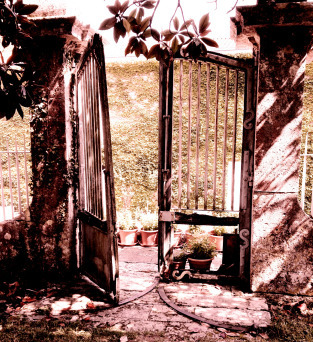
We struggle our entire lives to be accepted as ourselves. Facing further obstacles due to autism now being a buzzword in the media only complicates things. Expanded autism awareness has not resulted in greater autism understanding or inclusion.
The notion of us being a curiosity of behavior needs to be dropped. We are the modern equivalent of the circus freak — stared at, snickered about, even feared. I don’t want us becoming a joke, or a cliche. I really want people to realize that we are not the punchline — that we’re just as valuable as everybody without autism.
Will it happen in my lifetime? Perhaps? But I’m also releasing 2 spectrum children into the world one day — and I sincerely hope they won’t have to struggle the same way I did.
So, it starts with us. It starts now.

Daley Downing's Blog
- Daley Downing's profile
- 36 followers



